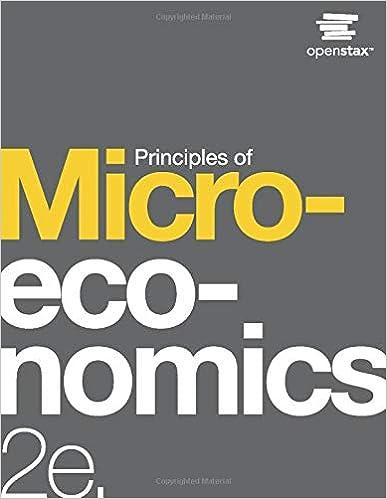38. In the argument for why perfect competition is allocatively efficient, the price that people are willing
Question:
38. In the argument for why perfect competition is allocatively efficient, the price that people are willing to pay represents the gains to society and the marginal cost to the firm represents the costs to society. Can you think of some social costs or issues that are not included in the marginal cost to the firm? Or some social gains that are not included in what people pay for a good?
Fantastic news! We've Found the answer you've been seeking!
Step by Step Answer:
Related Book For 

Question Posted:






